SUMMARY
This is AI generated summarization, which may have errors. For context, always refer to the full article.
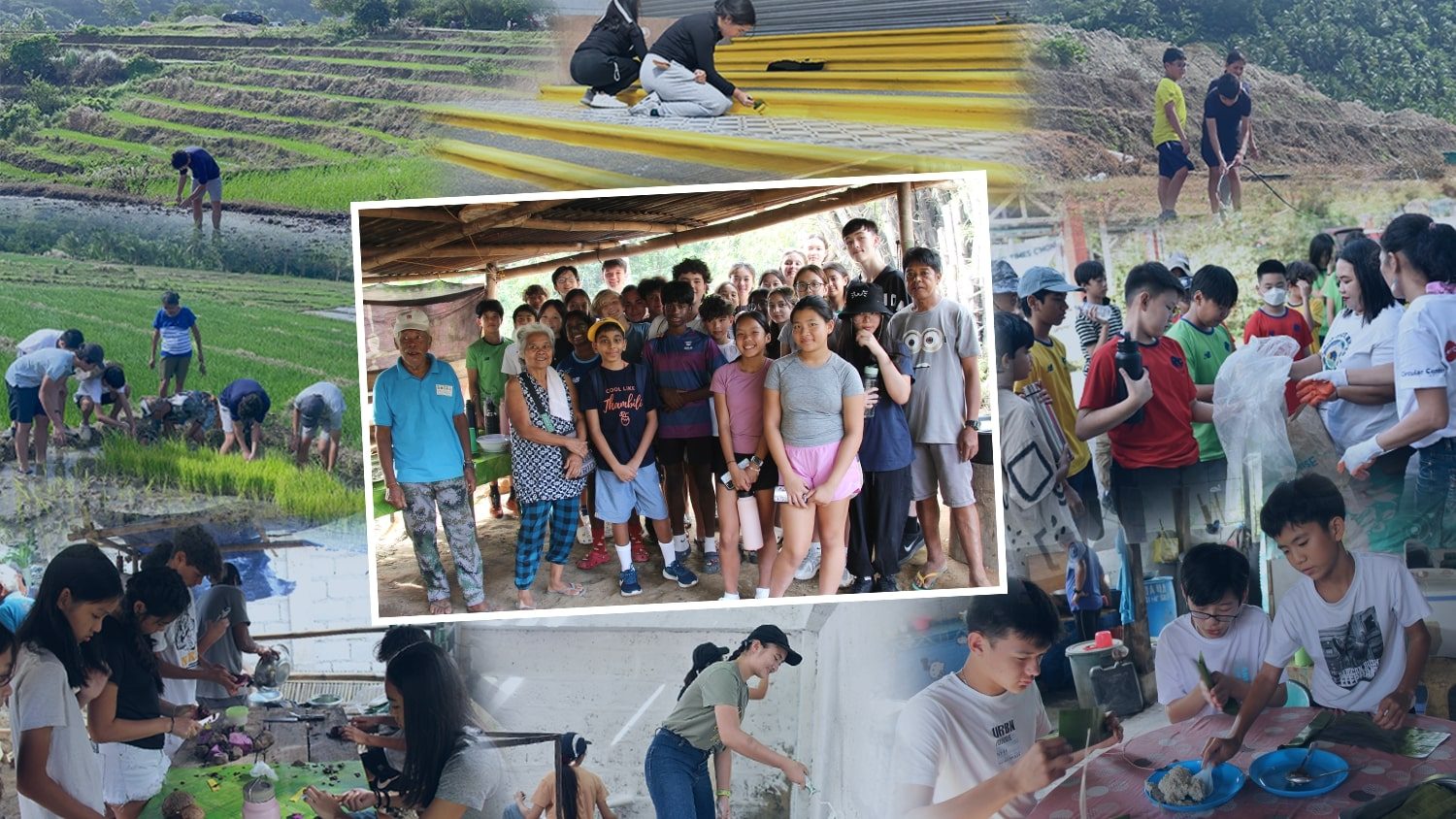
Many realities exist in the Philippines, from those of indigenous communities to PWD folks to the regular British School Manila (BSM) student. Although their stories differ, they share one country as a home – and that’s why genuine impact starts with each sector understanding each other for collective action.
This lesson stands out in BSM’s curriculum, particularly because the students go out and progressively immerse themselves in marginalized communities each year. Last January, the school held their second annual Make a Difference (MAD) Week, an on-ground trip where BSM students engage with different social sectors to holistically understand their stories and build lasting relationships.
Opening young eyes to intersectionality
The program is designed to progress for four years, so students can find the causes they resonate with and work with their chosen community long-term.
“We kind of flipped the model in school,” said Michael Guinness, BSM’s senior Service and Sustainability curriculum coordinator. “I think too often we make assumptions about communities and about people who are underprivileged, or even an ecosystem that’s underprivileged, and we don’t give them the space to tell us what’s going on.”
Instead of a one-and-done activity, the school focused on facilitating more authentic and collaborative experiences for both students and partner communities. This way, the students get a broader picture, seeing how larger factors like the environment or economy are entangled with these sectors’ narratives.
“It builds that long-term ability to truly understand these communities that we’re working with, and make sure that we’re working alongside them, not ‘to’ them or ‘at’ them. The heart of doing that is knowing that the people in these communities are the experts in their own problems.”
Shifting perspectives begins with language
The students began to embody this perspective with something as simple as language. As the program went on, the students learned to talk about the activities in the context of listening instead of “serving.”
Dalisaï Costa, a Year 10 student, spent her MAD Week with the Dumagat tribe in Mount Purro Nature Reserve. There, she learned about the community’s deep-rooted challenges on cultural identity after facing displacement and marginalization since the Spanish colonial time. The ripples of that problem are felt up until now, as the elders are hard-pressed to get the youth to pick up their traditions and culture.

These stories struck a chord with Dalisaï and her personal experiences as a French-Filipino individual. “They have, I guess, an identity loss. I’ve faced, of course to a much lesser extent, the feeling sometimes that I do not fit certain prospects of being a French or Filipino individual. Trying to imagine what it feels like being part of a community which is so discriminated against in Filipino and Spanish culture; it’s just a striking thing.”
Another Year 10 student, Maximillian Holden, had his first encounter with the farming ecosystem during his Costales Nature Reserve visit. The experience allowed him to widen his viewpoint beyond just planting crops.

“The people at the farm, it’s a very low population. They’re only 30 to 50 people there, and they farm every day. They support loads of businesses and restaurants here in Manila. They do all of this every day and work 12 hours, which is very impressive. Nobody really sees it,” said Max.
The visit let him come face to face with the socioeconomic effects of climate change. “They are a farm, and they need a specific temperature for their plants to grow. With climate change increasing the temperature, lots of their plans had to be [changed] and they had to invest in new seeds and plants. They had to start from the beginning again.”
Climate change was a central theme during the week, but the students learned to see it with a lens of hope as they work with partner communities, instead of social-media-fueled gloom and doom. Here, they can take real steps to help make things better.
“I feel like a lot of problems institutions face with incorporating sustainability in their curriculum is that it tends to be seen as very hopeless and tedious,” said Dalisaï, who is a senior Service and Sustainability student representative herself. “[We’re] seeing sustainability in a much more positive light, in the theme of this year’s MAD Week, which is Hope. It’s much less dreary, and that engages students.”
Deeper partnerships for lasting change
The long-term program is an exercise on openness for the students, who were encouraged to dive into their partner communities’ worlds. They communicated with help from translators, participated in local activities, gathered scientific data, and culminated their education with documentaries.
“Being able to uplift the community and highlight their strengths, that’s what MAD Week’s about. It’s not about trying to change the community, but it’s trying to empower them to be independent,” said Dalisaï.

This has always been the program’s DNA, which was borne of an extensive collaboration between BSM and social enterprise group MAD Travel. “The current education system tends to take [topics] apart and keep them separate, but we all know that our environment is connected to the economy. It’s integrated,” said Rafael Dionisio, a co-founder of MAD Travel.
“We can’t separate them from one another, and so dissolving those separations is important. So we’re super happy about [the BSM collaboration]. They’re setting an example for other schools that, hey, it can be done.”
The program’s current run has two years to go, but the budding growth is already palpable in both students and their partner communities. The goal of MAD Week is for students to internalize these lessons beyond graduation, and as long as they do, the country has more sparks of hope that can lead the charge to change in the future. – Rappler.com
Add a comment
How does this make you feel?
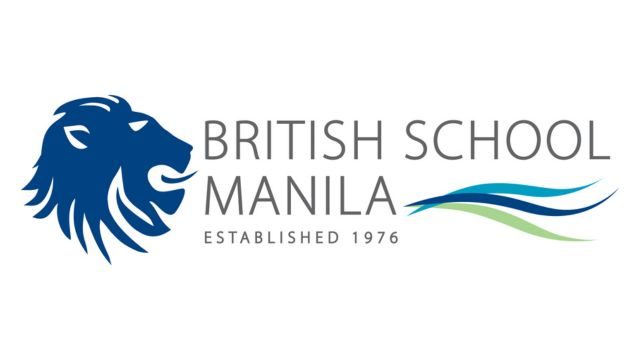
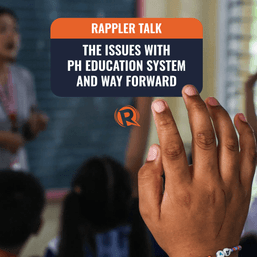
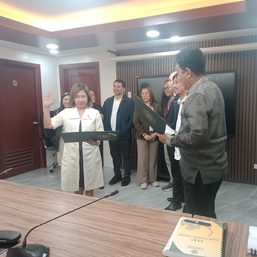
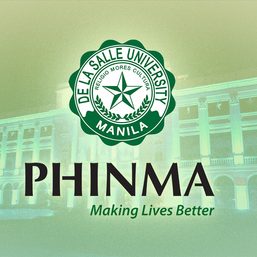
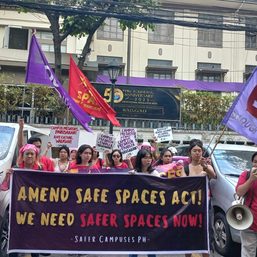
There are no comments yet. Add your comment to start the conversation.